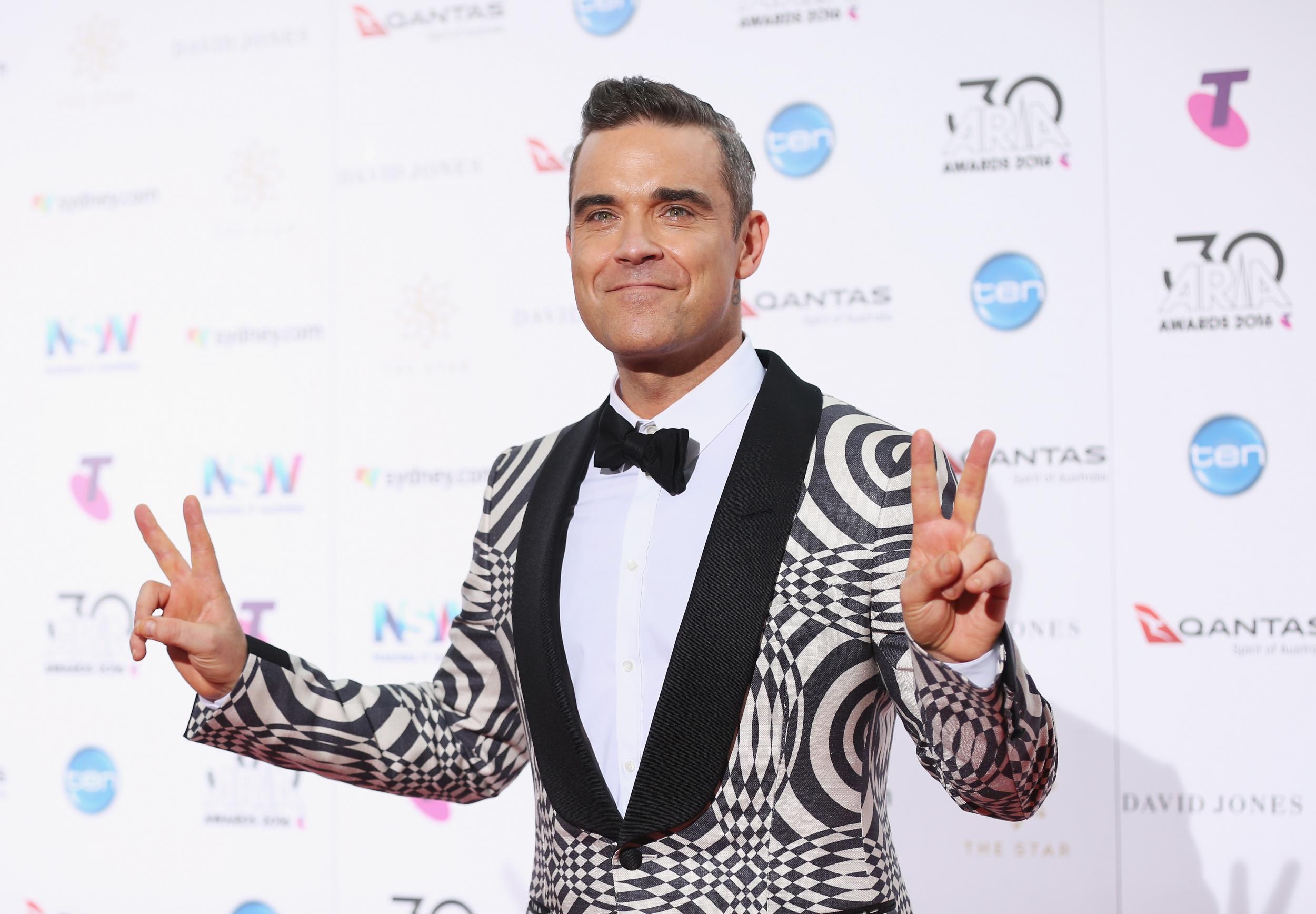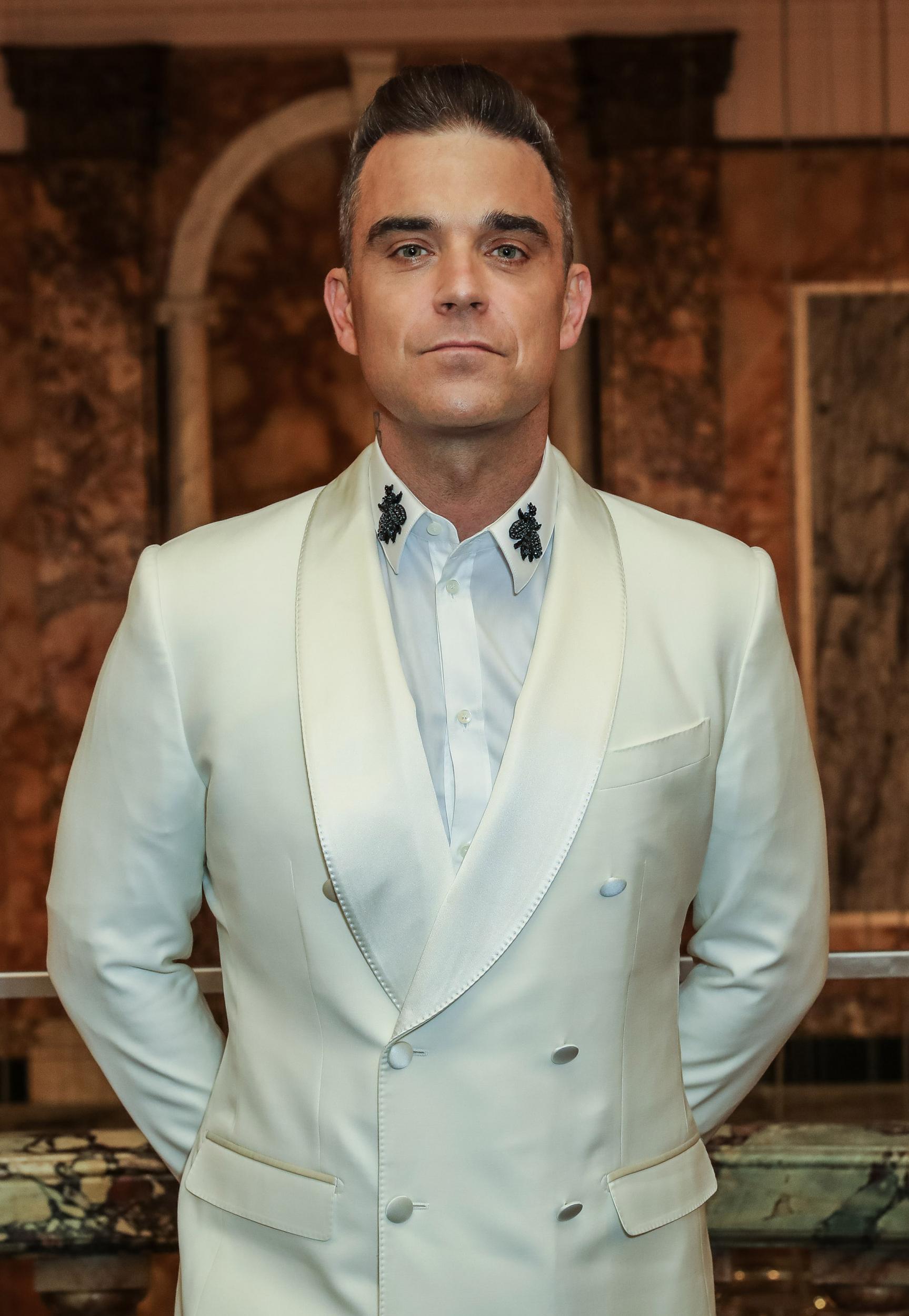Robbie Williams says battle with agoraphobia left him housebound for three years
‘I wasn’t leaving the sofa at the time. I just couldn’t’

Robbie Williams has opened up about his battle with agoraphobia, revealing that the condition left him unable to get off the sofa for three years.
On Sunday evening, the former Take That singer performed at BST Hyde Park. However, the opportunity to sing in front of his adoring fans is something the 45-year-old thought may never be a possibility again as a result of his battle with the condition.
Suffering from agoraphobia from 2006 until 2009, Williams told The Sun that he was unable to “leave the sofa” and couldn’t take on more work because his mind was telling him that he “shouldn’t go anywhere”.
“My career had gone stratospheric and taken me to Mars, and I needed some time to get my equilibrium back and get myself back together,” the singer told the publication.
“It was my body and mind telling me I shouldn’t go anywhere, that I couldn’t do anything. It was telling me to just wait — so I literally just sat and waited.”
Williams added that during those years he spent a lot of his time “wearing a cashmere kaftan, eating Kettle Chips, growing a beard and staying in”.
The NHS states that agoraphobia is a fear of being in situations where escape might be difficult or that help wouldn’t be available if things go wrong.
While the condition usually develops as a complication of panic disorder, it can arise due to a fear of crime, terrorism, illness, or being in an accident, the organisation explains.
The singer also discussed how the condition resulted in him turning down £15m and the opportunity to replace Simon Cowell as a judge on American Idol.
He said: “I wasn’t leaving the sofa at the time. I just couldn’t.”

Reflecting on his time suffering from agoraphobia, the singer credits The Killers’ song “Human” for helping him recover from the illness – more specifically the tune’s lyrics: “And sometimes I get nervous, when I see an open door.”
Explaining the power of the song, Williams said: “I remember listening to that Killers song and something in that moment made me think, ‘I had better get my arse in gear, put an album together and tour’.”
The Stoke-on-Trend-born performer added that he sought therapy to overcome his battle with the illness and believes that his reunion with Take That helped immensely.
“It wasn’t an easy process, it was like having a car crash and then learning how to walk again,” he added.
“If it wasn’t for Take That, and rejoining them, I don’t know if I’d have come back at all. Initially, I got to hide in plain sight — I could hide behind my boys. They helped an awful lot.”
Lifestyle changes, including taking regular exercise and eating more healthily, as well as psychological therapies like cognitive behavioural therapy (CBT) can help treat agoraphobia, the NHS outlines.
Williams’ comments come weeks after former One Direction singer Liam Payne revealed he has also suffered from agoraphopbia.
“I developed a bit of agoraphobia. I would never leave the house,” Payne told Esquire Middle East in May.

“And I do sometimes suffer with it a bit in the sense that I’ll get days where I just don’t want to leave my house. Even if it’s just going to the shop.”
Payne said that on occasion, ordering a coffee at Starbucks would make him sweat because he wouldn’t know whether he was “doing the right thing or not”.
“I would be thinking: ‘F**k, I don’t want to be here,” he remarked.
Join our commenting forum
Join thought-provoking conversations, follow other Independent readers and see their replies
Comments
Bookmark popover
Removed from bookmarks